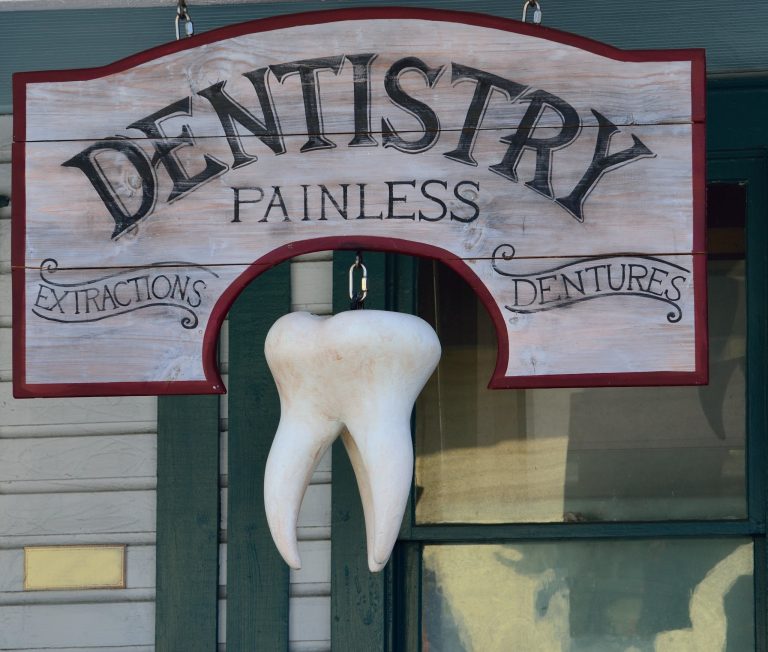Fear No More How Sedation Dentistry Can Ease Dental Anxiety
Fear of visiting the dentist is a common experience for many individuals, leading to a condition known as dental anxiety. This apprehension can stem from various causes, and the symptoms can manifest in a range of ways. From difficulty sleeping before a dental appointment to experiencing panic attacks during visits, the effects of dental anxiety can be overwhelming.
There is a solution that can help alleviate these fears – sedation dentistry. In this article, we will delve into the causes and symptoms of dental anxiety, explore how sedation dentistry can provide relief, and discuss the potential risks and side effects associated with this approach. We will provide insights on how to prepare for a sedation dentistry appointment, empowering individuals to take proactive steps toward managing their dental anxiety. If you or someone you know grapples with dental anxiety, this comprehensive guide will offer valuable information to support you in your journey toward a more comfortable dental experience.
What Is Dental Anxiety?
Dental anxiety refers to the emotional stress, fear, or uneasiness experienced by individuals when visiting a dental office for various procedures or treatments.
This type of anxiety can significantly impact a patient’s willingness to seek necessary dental care, often resulting in avoidance of appointments and worsening oral health. The fear of pain, the sound of dental equipment, or previous negative experiences can contribute to dental anxiety.
For example, a patient may have had a traumatic experience during a dental procedure in the past, leading to a persistent fear of similar experiences in the future. Creating a stress-free experience and eliminating fear can help patients overcome dental anxiety and receive the care they need for optimal oral health.
What Are The Causes Of Dental Anxiety?
Dental anxiety can stem from various factors, including fear of pain, previous negative dental experiences, discomfort with dental tools, and uncertainty about the outcome of the procedures.
This fear is often exacerbated by the sound of dental equipment and the anticipation of discomfort during treatments. Individuals may feel anxious due to a lack of control while undergoing dental procedures.
It is important for dental professionals to acknowledge these concerns and create a relaxed environment to help alleviate patient’s anxiety. Introducing calming techniques, such as deep breathing exercises or soothing music, can also aid in anxiety management, making the dental visit more comfortable for the patient.
What Are The Symptoms Of Dental Anxiety?
Symptoms of dental anxiety may manifest as heightened fear, restlessness, discomfort, increased heart rate, sweating, and in severe cases, panic attacks when faced with dental visits or procedures.
It’s not uncommon for individuals experiencing dental anxiety to also exhibit emotional symptoms such as irritability, difficulty concentrating, and feelings of dread leading up to a dental appointment. Physically, some might experience muscle tension, headaches, and gastrointestinal distress.
To alleviate these symptoms, dental clinics often employ various patient comfort techniques like creating a calming environment, playing soothing music, using relaxation techniques, and offering sedation options to help patients manage their dental fear.
Difficulty Sleeping Before A Dental Appointment
One common symptom of dental anxiety is the difficulty in sleeping before a dental appointment, which may necessitate the use of sedation dentistry or calming techniques to alleviate the fear and promote a restful state.
This experience can be distressing for individuals who have a fear of dental procedures, leading to heightened stress levels due to anticipation. Sedation dentistry, also known as fear-free dentistry, offers various sedatives and anxiety control methods to help patients relax during dental visits. By incorporating sedatives, such as oral medications or nitrous oxide, patients can achieve a state of calm and comfort, enabling them to undergo necessary dental treatments without overwhelming unease.
Feeling Nervous Or Restless When Thinking About Dental Visits
Individuals suffering from dental anxiety often experience nervousness or restlessness when contemplating dental visits, highlighting the need for an environment that promotes relaxation and may necessitate the use of sedation dentistry to alleviate these feelings.
The impact of dental anxiety on emotions related to dental visits can be profound, leading to elevated stress levels, fear of pain, or even avoidance of dental care altogether. Creating a stress-free experience for nervous patients is crucial in addressing dental phobia and ensuring regular dental check-ups.
Establishing a relaxed environment, offering gentle care, and clear communication can help ease the concerns of anxious individuals and provide them with the necessary support to overcome their fears.
Experiencing Panic Attacks Or Physical Symptoms During Dental Visits
Severe dental anxiety can lead to panic attacks and physical symptoms during dental visits, underscoring the potential benefits of sedation dentistry in providing anxiety relief, reducing fear, and creating a peaceful experience for the patient.
The fear and stress experienced by individuals with severe dental anxiety often manifest as increased heart rate, shallow breathing, and even trembling during dental appointments. Sedation dentistry offers various methods such as oral sedatives, nitrous oxide, or IV sedation to help patients relax and feel at ease throughout their treatment. By effectively managing their anxiety, patients can have a more positive experience, facilitating necessary dental care without the overwhelming fear that can often accompany it.
How Can Sedation Dentistry Help With Dental Anxiety?
Sedation dentistry offers various options to manage and alleviate dental anxiety, providing a stress-free and fear-free experience for patients through the administration of sedatives and calming techniques.
These options include:
- Oral sedatives
- Nitrous oxide
- Intravenous (IV) sedation
- General anesthesia
Catering to different levels of anxiety and dental procedures. By incorporating sedation dentistry, patients can undergo dental treatments with reduced fear and stress, leading to a more relaxed and comfortable experience. This approach also enables individuals with previous traumatic dental experiences to receive necessary care, promoting better oral health and overall well-being.
Sedation dentistry allows for longer appointments, facilitating the completion of comprehensive treatments in fewer visits, which is beneficial for patients with busy schedules.
Types Of Sedation Used In Dentistry
Dentistry utilizes various types of sedation to promote relaxation, comfort, and anxiety control among patients, including oral sedatives, nitrous oxide, and intravenous (IV) sedation.
Oral sedatives, such as diazepam or triazolam, are often prescribed to be taken before a dental procedure to induce a calming effect. Nitrous oxide, commonly known as laughing gas, is inhaled through a mask, leading to a pleasant, euphoric sensation. IV sedation involves delivering a sedative medication directly into the bloodstream, allowing for deeper relaxation while still maintaining consciousness.
Each sedation method aims to alleviate patient fears, discomfort, and anxiety during dental treatments, enhancing the overall experience for the individual.”
How Sedation Dentistry Works
Sedation dentistry works by utilizing sedatives to alleviate fear, provide anxiety relief, and create a peaceful experience, allowing patients to undergo dental procedures in a relaxed and comfortable state.
Various sedation methods, such as oral sedatives, nitrous oxide, and intravenous sedation, are tailored to meet the needs of individual patients. These sedatives act on the central nervous system, effectively calming any apprehensions and enabling the dental team to carry out treatments while ensuring the patient’s comfort.
The use of sedation dentistry can help those with dental phobia access the care they need, promoting better oral health and overall well-being.
Benefits Of Sedation Dentistry For Dental Anxiety
The benefits of sedation dentistry for dental anxiety include:
- Anxiety relief
- Fear reduction
- The promotion of a stress-free and fear-free experience
This approach allows individuals who have been avoiding dental visits due to their fears to finally address their oral health concerns. By creating a calming and relaxed environment, sedation dentistry helps patients overcome their dental phobias and ensures that they can undergo necessary procedures without feeling overwhelming fear. The reduced anxiety can lead to improved oral health outcomes as patients are more likely to attend regular check-ups and follow through with recommended treatments.
What Are The Risks And Side Effects Of Sedation Dentistry?
While sedation dentistry offers benefits, it is important to consider the associated risks and possible side effects, including those related to specific sedation drugs, to ensure a stress-free and safe dental experience.
Some common side effects of sedation drugs may include drowsiness, dizziness, nausea, or headaches. In rare cases, individuals may experience allergic reactions or adverse effects. It’s crucial for dental professionals to carefully evaluate a patient’s medical history and current health status before administering sedation. Patients should be informed about the potential risks and side effects, and their consent should be obtained prior to the procedure. Monitoring during and after the dental treatment is essential to manage any complications that may arise from sedation.
Risks Associated With Sedation Drugs
The use of sedation drugs in dentistry carries inherent risks that need to be carefully managed, emphasizing the importance of anxiety control, patient relaxation, and vigilant monitoring during the sedation process.
When administering sedation, dentists must consider the potential side effects and complications that may arise, such as respiratory depression, allergic reactions, and oversedation. Patient relaxation is crucial for successful dental procedures, as it helps alleviate fears and ensures a more comfortable experience.
Proper monitoring of vital signs and sedation levels is essential to mitigate any adverse events. Striking a balance between relaxation and risk management is pivotal in ensuring safe and effective dental sedation practices.
Possible Side Effects Of Sedation Dentistry
Patients undergoing sedation dentistry may experience potential side effects, highlighting the need for effective anxiety management and strategies to ensure a stress-free experience throughout the dental procedure.
It is crucial for dental practitioners to educate their patients on the possible side effects of sedation dentistry, such as nausea, dizziness, and grogginess. By understanding these potential outcomes, patients can make informed decisions and take appropriate steps to manage their anxiety.
Implementing mindful breathing exercises, pre-procedure counseling, and using techniques like music or visualization can significantly reduce stress and promote a more comfortable experience for patients. Establishing clear communication and trust between the patient and the dental team can further contribute to a positive sedation dentistry experience.
How To Prepare For A Sedation Dentistry Appointment?
Preparation for a sedation dentistry appointment involves consulting with a dentist, following specific pre-appointment instructions, and arranging transportation and aftercare to ensure a smooth and stress-free experience.
During the consultation, the dentist will discuss the sedation options available, review your medical history, and address any concerns or questions you may have about the procedure. It’s important to disclose any medications you are currently taking and any underlying health conditions. Following the pre-appointment instructions regarding fasting and medication usage is crucial to ensure the effectiveness and safety of the sedation.
Arranging for transportation to and from the appointment is essential, as the sedative effects may linger after the procedure. Planning for post-procedure care, such as having someone accompany you home and being prepared with any prescribed medications, will contribute to a comfortable and seamless recovery process.
Consultation With A Dentist
Prior to a sedation dentistry appointment, it is essential to have a detailed consultation with a dentist to discuss sedation options, anxiety management, and personalized dental care plans to address any concerns or preferences.
During this consultation, the dentist can assess the patient’s medical history, anxiety levels, and overall dental needs to determine the most suitable sedation method. Open communication allows the dentist to tailor the sedation approach, whether it’s oral sedatives, nitrous oxide, or IV sedation, to ensure the patient’s comfort and safety.
Discussing anxiety management techniques and creating a supportive environment can significantly alleviate any fears or apprehensions related to the dental procedure.
Follow Pre-Appointment Instructions
Patients are advised to carefully follow pre-appointment instructions provided by the dental office, which may include:
- Dietary restrictions
- Medication guidelines
- Specific steps to promote anxiety relief and fear elimination before the procedure
These instructions are designed to ensure the safety and effectiveness of sedation dentistry. It is crucial to communicate any medication allergies or current health conditions to the dental team. Practicing relaxation techniques, such as deep breathing or meditation, can help calm nerves before the appointment. Maintaining a balanced diet and staying hydrated can also contribute to a successful sedation experience. By actively participating in these pre-appointment guidelines, patients can enhance their overall dental care experience and alleviate any fears or anxieties associated with the procedure.
Arrange Transportation And Aftercare
Arranging transportation to and from the dental appointment and ensuring proper aftercare are crucial aspects of preparing for a sedation dentistry experience, contributing to a stress-free and seamless dental care journey.
It is essential to arrange for a reliable individual to accompany the patient, as driving under the influence of sedation medication is unsafe. Post-treatment aftercare, such as resting and avoiding strenuous activities, plays a pivotal role in ensuring a smooth recovery. By proactively addressing these arrangements, patients can focus on their dental care without worrying about logistical concerns.
Frequently Asked Questions
What is sedation dentistry and how can it help ease dental anxiety?
Sedation dentistry is a practice in which medication is used to help patients relax during dental procedures. This can greatly ease dental anxiety and make the experience more comfortable for those who have a fear of the dentist.
Who can benefit from sedation dentistry?
Sedation dentistry can benefit anyone who experiences fear or anxiety when visiting the dentist. It can also help patients who have a low pain threshold, sensitive gag reflex, or difficulty sitting still for long periods of time.
What types of sedation are commonly used in dentistry?
The most common types of sedation used in dentistry are nitrous oxide (also known as laughing gas), oral sedation (taken in pill form), and intravenous (IV) sedation. Each type offers varying levels of sedation to cater to different levels of anxiety.
Is sedation dentistry safe?
When performed by a qualified and experienced dentist, sedation dentistry is considered safe. The use of sedatives is closely monitored to ensure the patient’s safety and comfort throughout the procedure.
Will I be completely unconscious during the procedure?
The level of sedation can be adjusted to suit the patient’s needs. In most cases, patients will remain conscious and able to respond to the dentist’s instructions. However, some forms of sedation may cause drowsiness or even induce sleep.
Is sedation dentistry suitable for all dental procedures?
Sedation dentistry can be used for a wide range of dental procedures, from basic teeth cleaning to more complex treatments such as root canals or wisdom teeth removal. Your dentist will evaluate your medical history and level of anxiety to determine if sedation is appropriate for your specific procedure.



